Disclaimer & claim:
WE the PEOPLE of the LORD trust God.
Nations rise and nations will fall. The Prophet Jeremiah had warned Judah of their impending fall.
Lamentations is the record of their fall from the grace and mercy of God.
Lamentations is indictment of rulers who do not hear the cries of their people or acknowledge the leadership of God.
HOW? did our nation fall?
c. 1007 Before Christ – a prophesy of David
David’s Lament for Saul and Jonathan
17 And David lamented with this lamentation over Saul and Jonathan his son, 18 and he said it should be taught to the people of Judah; behold, it is written in the Book of Jashar. He said:
19 “Your glory, O Israel, is slain on your high places!
How the mighty have fallen!
THE KINGS
Jeremiah’s prophetic career spanned the reigns of five kings: Josiah, Jehoahaz, Jehoiakim, Jehoaichin, and Zedekiah. Like the structure of the book, the line of kings speaks of the chaos and growing confusion of the times as four of the five kings had short reigns.
- Josiah reigned for 31 years, but died at the young age of 39.
- Jehoahaz reigned for 3 months before the King of Egypt captured him.
2 Chronicles 36:3 The king of Egypt prevented him from ruling in Jerusalem and imposed on the land a special tax of one hundred talents of silver and a talent of gold.
- Jehoiakim reigned for 11 years before he died at the age of 36. Early in his reign, Nebuchadnezzar took captive many in the court (Daniel 1:1).
2 Kings 24:1 During Jehoiakim’s reign, King Nebuchadnezzar of Babylon attacked. Jehoiakim was his subject for three years, but then he rebelled against him. 2 The Lord sent against him Babylonian, Syrian, Moabite, and Ammonite raiding bands; he sent them to destroy Judah, as he had warned he would do through his servants the prophets.
- Jehoiachin, the son of Jehoiakim, reigned for 3 months before he was captured by Nebuchadnezzar. He and some 10,000 others were transported to Babylon. These were mostly craftsmen and smiths (2 Kings 24:16).
- Zedekiah, the brother of Jehoahaz and Jehoiakim, then reigned for 11 years. His reign ended with the capture and destruction of Jerusalem (2 Kings 25:6).
Since Jeremiah’s career began in the 13th year of Josiah’s reign and continued for an unspecified period beyond the fall of Jerusalem, we can infer a career lasting for more than 40 years (for the Prophet Jeremiah, who writes Lamentations after the fall of Jerusalem).
Lamentations 2
English Standard Version (ESV)
The Lord Has Destroyed Without Pity
2 How the Lord in his anger
has set the daughter of Zion under a cloud!
He has cast down from heaven to earth
the splendor of Israel;
he has not remembered his footstool
in the day of his anger.
2 The Lord has swallowed up without mercy
all the habitations of Jacob;
in his wrath he has broken down
the strongholds of the daughter of Judah;
he has brought down to the ground in dishonor
the kingdom and its rulers.
3 He has cut down in fierce anger
all the might of Israel;
he has withdrawn from them his right hand
in the face of the enemy;
he has burned like a flaming fire in Jacob,
consuming all around.
4 He has bent his bow like an enemy,
with his right hand set like a foe;
and he has killed all who were delightful in our eyes
in the tent of the daughter of Zion;
he has poured out his fury like fire.
As Jeremiah had warned Judah before their destruction, a man whose importance is now hidden away from the truths before America’s former trust warned a new nation.
JONATHAN EDWARDS was born into a Puritan evangelical household on October 5, 1703, in East Windsor, Connecticut.
1716-1722) at Yale College, Edwards engaged all manner of contemporary issues in theology and philosophy.
Edwards committed himself to vindicating his beliefs before the foreign luminaries of the Enlightenment by recasting Calvinism in a new and vital way that synthesized Protestant theology with Newton’s physics, Locke’s psychology, the third earl of Shaftesbury’s aesthetics, and Malebranche’s moral philosophy.
In 1726, Edwards succeeded his grandfather, Solomon Stoddard, as the pastor of the church in Northampton, Massachusetts, the largest and most influential church outside of Boston.
“The first and greatest homegrown American philosopher”Perry Miller, the grand expositor of the New England mind and founder of the Yale edition of the Works of Jonathan Edwards, described Edwards as the first and greatest homegrown American philosopher.
Edwards cast theology into “a method entirely new” by showing God’s work as a history structured around God’s scriptural promises and periods of the outpouring of the Spirit. An Humble Attempt to Promote . . .Extraordinary Prayer(1747) was part of a larger movement towards Anglo-American “concerts of prayer” and was an important contribution to millennial thought. Scholars such as Alan Heimert have recognized the signal importance of these works in American history, particularly their contribution to revolutionary ideology.
A Careful and Strict Inquiry into the Modern Prevailing Notions of that Freedom of Will…”(1754), in which he attempted to prove that the will was determined by the inclination of either sin or grace in the soul. This book, one of the most important works in modern western thought, set the parameters for philosophical debate on freedom and determinism for the next century and a half.
In late 1757, he accepted the presidency of the College of New Jersey (later Princeton University). While at Princeton, Edwards hoped to complete at least two more major treatises, one that would show “The Harmony of the Old and New Testaments” and the other that would be an experiment in narrative theology, a much expanded treatise on “The History of the Work of Redemption.” However, he did not live to complete these works. After only a few months in Princeton, he died on March 22, 1758, following complications from a smallpox inoculation. He is buried in the Princeton Cemetery.
John Adams:“What do we mean by the American Revolution? Do we mean the American War? The Revolution was effected before the War commenced. The Revolution was in the hearts and minds of the people; a change in their religious sentiments . . . This radical change in the principles, opinions, sentiments, and affections of the people was the real American Revolution.”
excerpts from: Jonathan Edwards: A Life by George M. Marsden – review by Dr. Samuel T. Logan, Jr.
Edwards wrote and ministered during this “real” American revolution and his theological insights cut right to the quick of the values which define the nation we now call America. In his brilliant analysis of The Ideological Origins of the American Revolution (which volume won both the Pulitzer Prize and the Bancroft Prize for American History)
To the degree that America, to this day, understands itself as “the land of the free” and to the degree that the highest of all American values and virtues (including some spiritual values and virtues) are defined in terms of freedom and liberty, to that very degree is Edwards’s Freedom of the Will, the most fundamental analysis of American culture. And to the degree that America seeks to export its values to the nations of the earth, to that very degree is Edwards’s The Nature of True Virtue, the most significant biblical critique of current global political and social issues.
As for our founding fathers, in God they trusted.
Returning to Jeremiah’s lament for Judah: 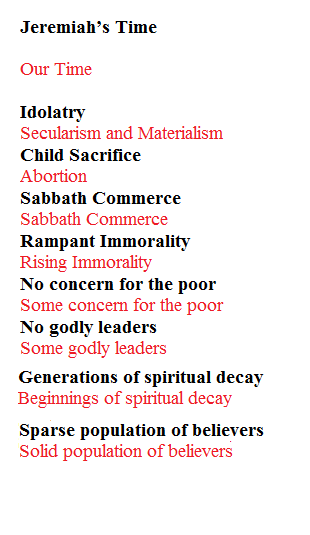
17 The Lord has done what he purposed;
he has carried out his word,
which he commanded long ago;
he has thrown down without pity;
he has made the enemy rejoice over you
and exalted the might of your foes.
19 “Arise, cry out in the night,
at the beginning of the night watches!
Pour out your heart like water
before the presence of the Lord!
Lift your hands to him
for the lives of your children,
who faint for hunger
at the head of every street.”
Jeremiah/Contemporary timeline source:
22 You summoned as if to a festival day
my terrors on every side,
and on the day of the anger of the Lord
no one escaped or survived;
those whom I held and raised
my enemy destroyed.

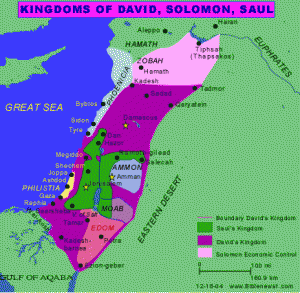
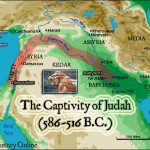
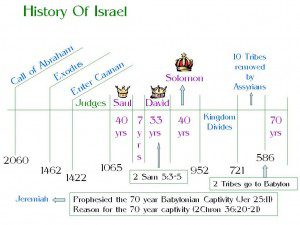
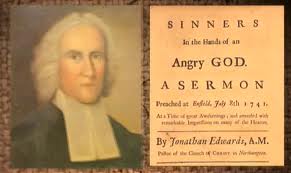

Leave a Reply